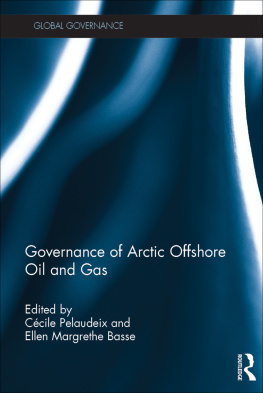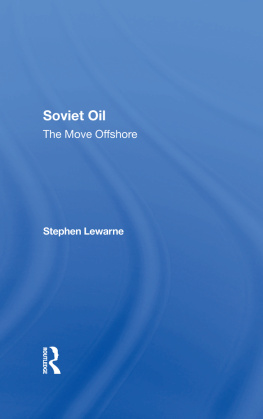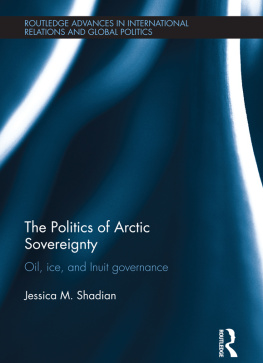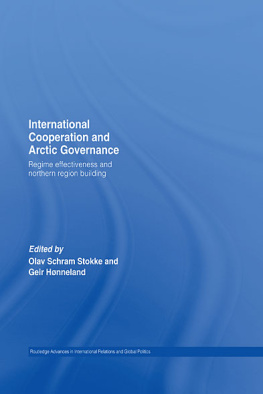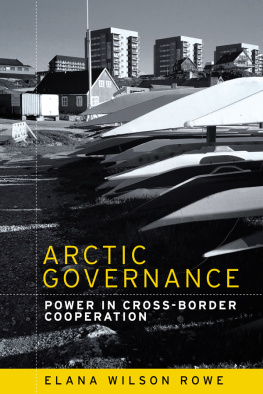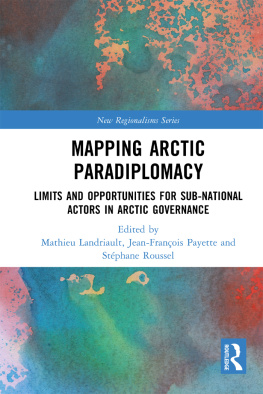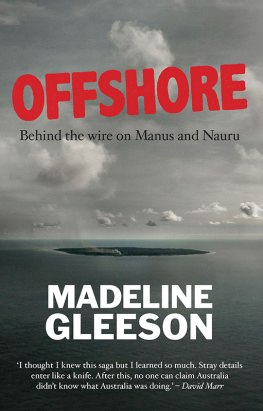Governance of Arctic Offshore Oil and Gas
Global energy problems will remain a challenge in the coming decades. The impact of climate change and the melting of polar sea ice opening up access to offshore hydrocarbon resources in the Arctic Ocean raises questions for both civil society and the scientific community over drilling opportunities in Arctic marine areas.
Disparities in approach to the governance of oil and gas extraction in the Arctic arise from fundamental differences in histories, cultures, domestic constraints and substantive values and attitudes in the Arctic coastal states and sub-states. Differing political systems, legal traditions and societal beliefs with regard to energy security and economic development, environmental protection, legitimacy of decision making and the ownership and respect of the rights of indigenous people all affect how governance systems of oil and gas extraction are designed.
Using a multidisciplinary approach and case studies from the United States, Norway, Russia, Canada, Greenland/Denmark and the EU, this book both examines the current governance of extraction and its effects and considers ways to enhance the efficiency of environmental management and public participation in this system.
Professor Ccile Pelaudeix, Aarhus University
Professor Ellen Margrethe Basse, Aarhus University
Global Governance
Series Editor: John J. Kirto
University of Toronto, Canada
Global governance is growing rapidly to meet the compounding challenges of a globalised 21st-century world. Many issues once dealt with largely at the local, national or regional level are now going global, in the economic, social and political-security domains. In response, new and renewed intergovernmental institutions are arising and adapting, multilevel governance is expanding, and sub-national actors are playing a greater role and creating complex combinations and private-partnerships to this end.
This series focuses on the new dynamics of global governance in the 21st century by:
Addressing the changes in the structure, operation and impact of individual intergovernmental institutions, above all their innovative responses to the growing global challenges they confront.
Exploring how they affect, are affected by and relate to non-state actors of global relevance and reach.
Examining the processes of cooperation, competition and convergence among international institutions and the many global governance gaps where global challenges such as terrorism, transnational crime and energy do not confront powerful international institutions devoted to their control.
Dealing with how global institutions govern the links among key issues such as climate change and health.
In all cases, it focuses on the central questions of how global governance institutions and processes generate the effective, legitimate, accountable results required to govern todays interconnected, complex, uncertain and crisis-ridden world.
Local Politics, Global Impacts
Steps to a Multi-Disciplinary Analysis of Scales
Olivier Charnoz, Virginie Diaz Pedregal
The G8-G20 Relationship in Global Governance
Edited by Marina Larionova and John J. Kirton
Chinas G20 Leadership
John J. Kirton
The New Economic Diplomacy
Decision-Making and Negotiation in International Economic Relations
Edited by Nicholas Bayne and Stephen Woolcock
Membership in the World Trade Organisation
Russia, China and Ukraine
Anastasia Loginova and Irina Mikheeva
First published 2018
by Routledge
2 Park Square, Milton Park, Abingdon, Oxon OX14 4RN
and by Routledge
711 Third Avenue, New York, NY 10017
Routledge is an imprint of the Taylor & Francis Group, an informa business
2018 selection and editorial matter, Ccile Pelaudeix and Ellen Margrethe Basse; individual chapters, the contributors
The right of Ccile Pelaudeix and Ellen Margrethe Basse to be identified as the authors of the editorial material, and of the authors for their individual chapters, has been asserted in accordance with sections 77 and 78 of the Copyright, Designs and Patents Act 1988.
All rights reserved. No part of this book may be reprinted or reproduced or utilised in any form or by any electronic, mechanical, or other means, now known or hereafter invented, including photocopying and recording, or in any information storage or retrieval system, without permission in writing from the publishers.
Trademark notice: Product or corporate names may be trademarks or registered trademarks, and are used only for identification and explanation without intent to infringe.
British Library Cataloguing-in-Publication Data
A catalogue record for this book is available from the British Library
Library of Congress Cataloging-in-Publication Data
A catalog record for this book has been requested
ISBN: 978-1-472-47150-5 (hbk)
ISBN: 978-1-315-58547-5 (ebk)
Typeset in Times New Roman
by codeMantra
Ellen Margrethe Basse is Professor of Environmental Law at the Department of Law, Aarhus University. She is a doctor habitation of environmental law and was awarded the jur.dr. (H.C.) at Uppsala University for her research education activities in this area. She is a former Professor of Procedural Law and Associate Professor of Administrative Law. She was the Director of the Interdisciplinary Social Science Research Centre (19922001) and the Chairman and Secretary of Aarhus Universitys Climate Panel (20082010). She has been a member of several research bodies, evaluation panels and think tanks in Denmark and other Nordic countries. She is the author of many books and articles on international, EU and national environmental, energy and climate law, public law and legal theory.
David Boertmann is Senior Researcher and Biologist at Aarhus University and an advisor to the Government of Greenland in environmental issues related to oil exploration. His areas of research concern ecology and taxonomy, with a focus on the distribution and occurrence of birds and marine mammals in Greenland and on mycology. He has recently mapped the distribution of breeding seabirds in the whole of Southeast Greenland.
Edward T. Canuel is a U.S. Foreign Service Officer with extensive international law experience. His career and scholarship have focused on energy, the Arctic, environmental sustainability and trade/investment issues, with overseas postings in Canada, Norway and Denmark. He has also served as the State Departments Visiting Professor at West Point and holds professorships at Aarhus University and American University. Dr. Canuel was named the US governments candidate to lead the Arctic Council Secretariat in 2012. His most recent legal publications at Duke University, West Point and the University of Texas deal with Arctic energy issues.
Vladimir Pacheco Cueva is Associate Professor at the School of Culture and Society, Aarhus University. His research interests include the socio-economic impacts and governance of non-renewable resource extraction in the Arctic and the Global South. Previous to this position, Cueva held senior roles in Australia with the Foundation for Development Cooperation, the Centre for Social Responsibility in Mining and the consulting firm WorleyParsons. His latest publication is a book chapter entitled From transnational trends to local practices: monitoring social impacts in a Papua New Guinea mining community (Routledge, 2015).

